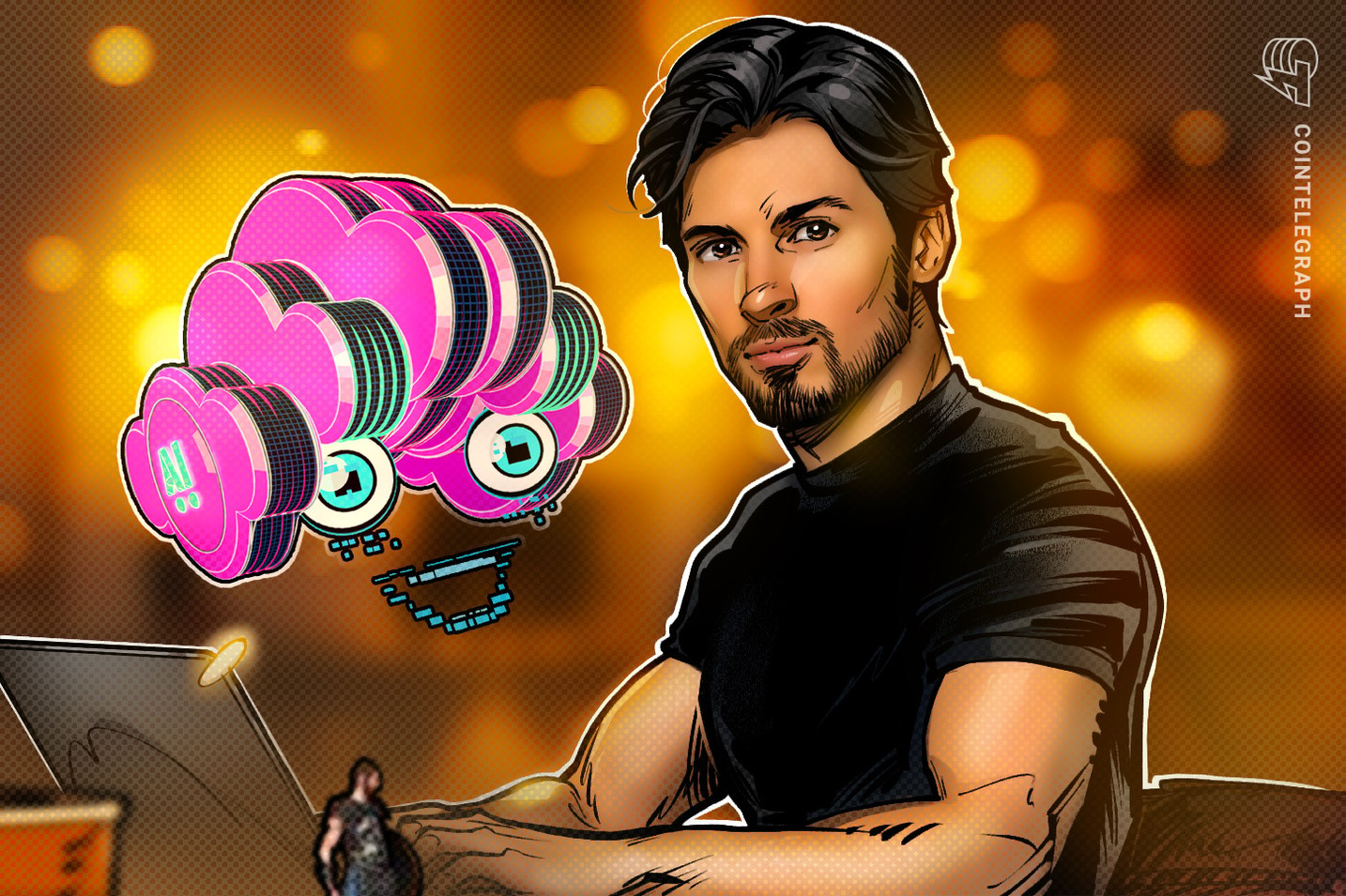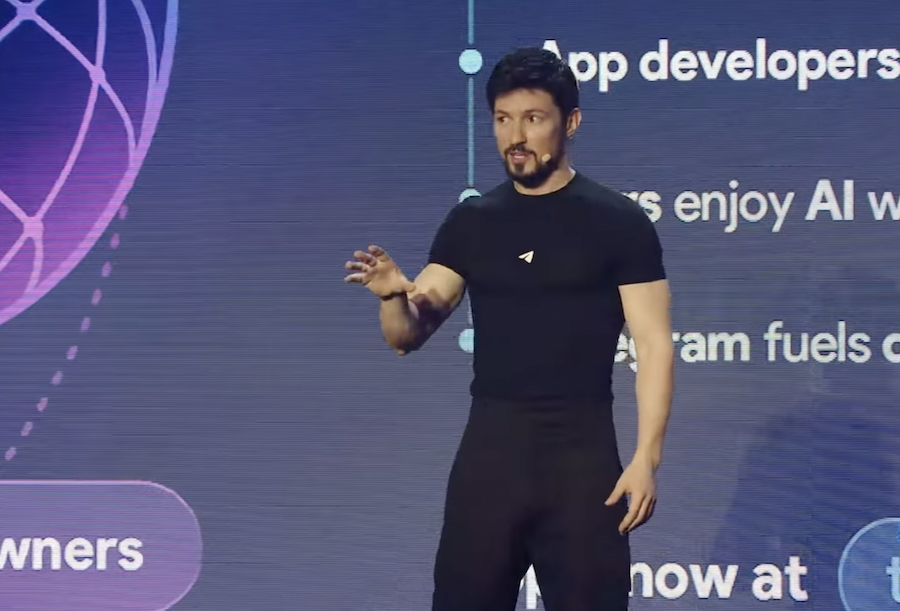
Pavel Durov, the co-founder of the messaging platform Telegram, has unveiled a decentralized AI network named Cocoon, which will be developed on The Open Network (TON), a standalone layer-1 blockchain linked with Telegram.
Durov made this announcement during the Blockchain Life 2025 forum held in Abu Dhabi, UAE. The aim is to provide users with access to AI tools while ensuring their data is not relinquished to centralized AI providers.
He mentioned that users can contribute their GPUs to the network in return for receiving Toncoin (TON), the native token of TON. Durov emphasized the necessity of decentralized AI in safeguarding human freedoms, stating:
“Why is it important to do something this way as opposed to the centralized way that is sometimes more convenient? It is important, my friends, because the world has been moving towards a weird direction. For the last 20 years. We’ve been gradually losing our digital freedoms.”
 Durov announcing Cocoon at the Blockchain Life 2025 forum.
Source: Blockchain Life 2025
Durov announcing Cocoon at the Blockchain Life 2025 forum.
Source: Blockchain Life 2025
The decentralization of AI models is a current subject of considerable discourse among AI and blockchain developers, primarily due to privacy concerns and the risk of centralized services censoring critical information unknowingly.
Risks Associated with Centralized AI
Experts from the crypto and Web3 sectors have stated that centralized AI creates privacy risks, including potential data breaches. David Holtzman, chief strategy officer of the Naoris decentralized security protocol, remarked that storing large amounts of user data on centralized platforms makes it a prime target for cyber attacks.
Centralized AI services may also alter algorithms discreetly or manipulate key data to shape public perception, according to several industry leaders.
Blockchain technology provides a means to ensure that AI-generated data remains secure and unalterable through the application of a decentralized ledger, which records the origin and transfer of data, creating a reliable digital record.


